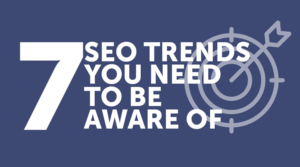Google +1, SEO, and How it Relates to Personalized Search

Google announces their latest attempt at social media with the +1 button in the search results and before the virtual ink is dry on the page, there are numbskulls trying to figure out ways that they can exploit this function to rank in search. Websites such as Fiver have people who are willing to sell people package deals to +1 their content 1,000 or so times.
Now, since many will think that Google has confirmed that they are using social platforms to help determine good content from bad, I think that there are those who think that making a purchase like this would be a good idea.
But before you jump out there, I want to present to you where I think that search is headed and how the search engines will eventually create a more personalized web for everyone. I also think that the +1 will help your website rank, just not in the everyone-likes-me-therefore-I-will-rank sort of way that we view ranking today.
Personalized Search….what is it?
Around 2007, Google starting implementing personalized search into their search results. It started with simply allowing gmail users to create their own homepage but since then has quickly accelerated into what some consider invasive (by monitoring what you are searching for).
They are doing this in many ways:
- By segmenting your social circles online and showing you information that your friends liked or mentioned on social platforms.
- By choosing ads if you have a gmail account according to the content within your emails.
- To some degree, by monitoring click through behavior in search (things you click on often shows up more often.)
You can take off those tin foil hats though. This isn’t as insidious (or big brother) as it sounds. They are doing it to be able to serve up more relevant ads to you according to what it can find out about you. The more they know about you and what your tastes are, the more likely they will be able to present to you what you are looking for…the more money they will make.
…so, if you and your neighbor down the street are searching for the same thing on Google, it is likely that you will get different results based on your past search behavior…..
….and the more plugged in, socially, that you are online, the greater the diversity in rankings between yourself and your neighbor in the future….
Social media platforms such as twitter can affect current and breaking news but for long term worthwhile rankings, the links that twitter delivers are fleeting, both for search engine rankings and as a long term traffic funnel.
But Google uses Twitter for the social clusters of who you follow as well. If you google something that a friend or follower already likes or has mentioned, you are likely going to see that your friend liked it (think, recommendation).
So, while it is true that there is a baseline ranking for a keyword, the rankings move according to how you (and your “friends”) react to the rankings…
How Google’s +1 Feature Could Play a Part in This…
Up to this point, I have spoken mainly in truths. There is no denying that YOUR social circle as well as your search behavior affects what shows up in search for YOU. The more connected you are online, the greater the diversity in rankings compared to the baseline rankings found in search.
Now for some ifs….
Google has added the +1 feature to the mix. Many are thinking that it will influence search rankings much like Twitter. Webmasters are wondering how Google plans to handle the litany of more savvy bloggers who are willing to game the system. Those that want to rank by any means possible are chomping at the bit…..
But what if Google +1 doesn’t necessarily play as much of a part in the baseline ranking as it does in the personalized search of the person who is clicking that +1 button?
In other words, what if by clicking the +1 button, you are affecting YOUR search results but not the ones of your neighbor?
Discussion Begins Now….
 5 Blogging Limiting Beliefs about Money that You Need to Release
5 Blogging Limiting Beliefs about Money that You Need to Release SEO is Evolving: Trend You Need to Know About [Infographic]
SEO is Evolving: Trend You Need to Know About [Infographic] What is Keeping Your Blog from Making Money?
What is Keeping Your Blog from Making Money? Importance Of Professional Social Media Services For Businesses
Importance Of Professional Social Media Services For Businesses
{ 22 Responses }